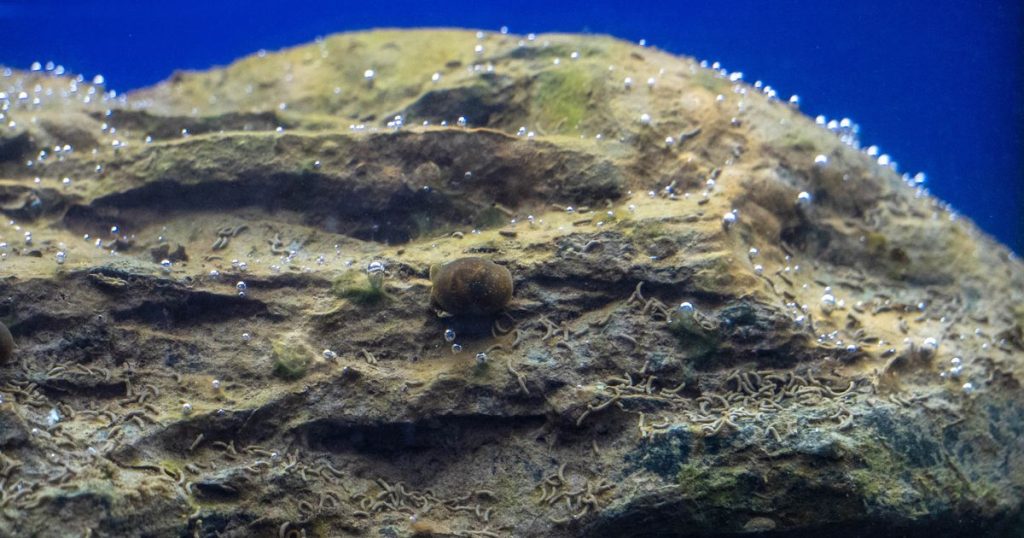The tiny glutinous snail, measuring just 1.5cm long, was once widespread across Britain but is now only found in one lake in Wales, Llyn Tegid. A team of experts is working to save this endangered species by transporting breeding pairs 150 miles to a new habitat in a pond near York. These snails have see-through, jelly-like mantles that cover their thin shells, making them sticky to touch. Transporting these delicate snails back to their new site was a challenging task, but conservation efforts are crucial to ensuring the survival of this species. The team is hopeful that the snails will successfully breed in their new environment.
Conservationist Ian Hughes has been working with these snails in Wales for the last decade and sees the relocation as a positive step towards preserving the species. The rehoming of the snails to a semi-natural pond near York is a significant milestone, especially since the snails have been extinct in England for 30 years. A total of 67 freshwater snail species have gone extinct, and 450 more are under threat, emphasizing the importance of protecting the habitats these animals live in. The team plans to create a dedicated reserve specifically for these glutinous snails for public viewing once they have settled in and begun breeding successfully.
The delicate nature of the glutinous snails requires careful handling during transportation and release into their new environment. Due to their rarity and the threat of extinction, it is essential to ensure that all conservation efforts are in place to safeguard the future of these unique creatures. Lauren Lane from Askham Bryan Wildlife Park emphasizes the importance of collaborative efforts to protect the species living in freshwater habitats, with a focus on conserving the waters they inhabit. Public support and awareness are vital in upholding these conservation initiatives aimed at rescuing endangered species like the glutinous snail.
Despite their diminutive size, glutinous snails play a crucial role in the ecosystem, and their disappearance could have far-reaching consequences. Their relocation to a secure habitat near York is a promising development that offers hope for the survival and recovery of this endangered species. The involvement of experts and conservationists in this effort highlights the dedication and commitment required to protect vulnerable species from extinction. Future plans include establishing a dedicated reserve for the glutinous snails to educate and engage the public in their conservation and preservation.
The transparency of the glutinous snails’ mantles and their sticky texture give them a unique appearance that distinguishes them from other species. These features, along with their small size and delicate shells, make them both fascinating and vulnerable to changes in their environment. By relocating breeding pairs to a protected habitat in Yorkshire, conservationists are taking proactive steps to ensure the long-term survival of these rare snails. Public awareness of the importance of preserving freshwater habitats is crucial for supporting ongoing conservation efforts.
The ongoing conservation work to save the glutinous snails from extinction emphasizes the interconnectedness of all species in the ecosystem. By focusing on protecting freshwater habitats and the diverse species that rely on them, conservationists are working towards a more sustainable and biodiverse environment. The rescue and relocation of the glutinous snails represent a small but significant step in preserving the biodiversity of the UK’s freshwater ecosystems. Through collaboration, public engagement, and dedicated conservation efforts, these tiny snails have a fighting chance at survival and recovery.


